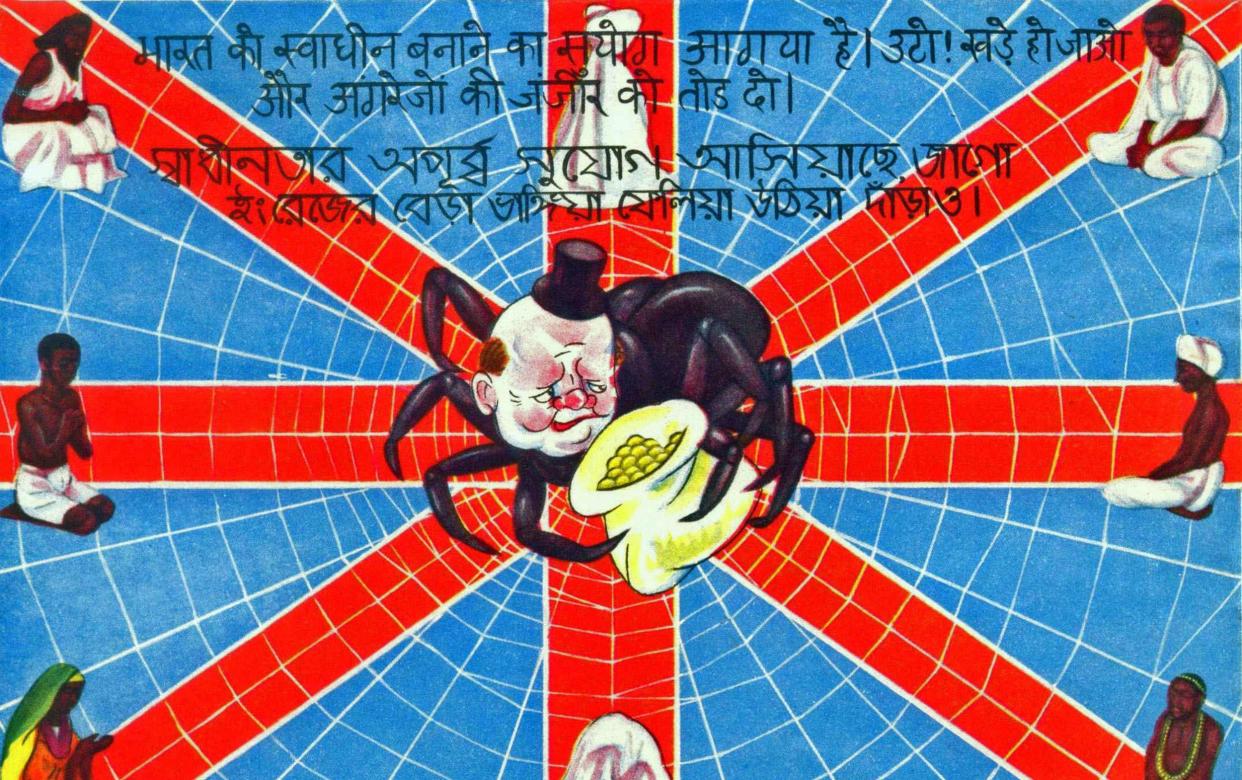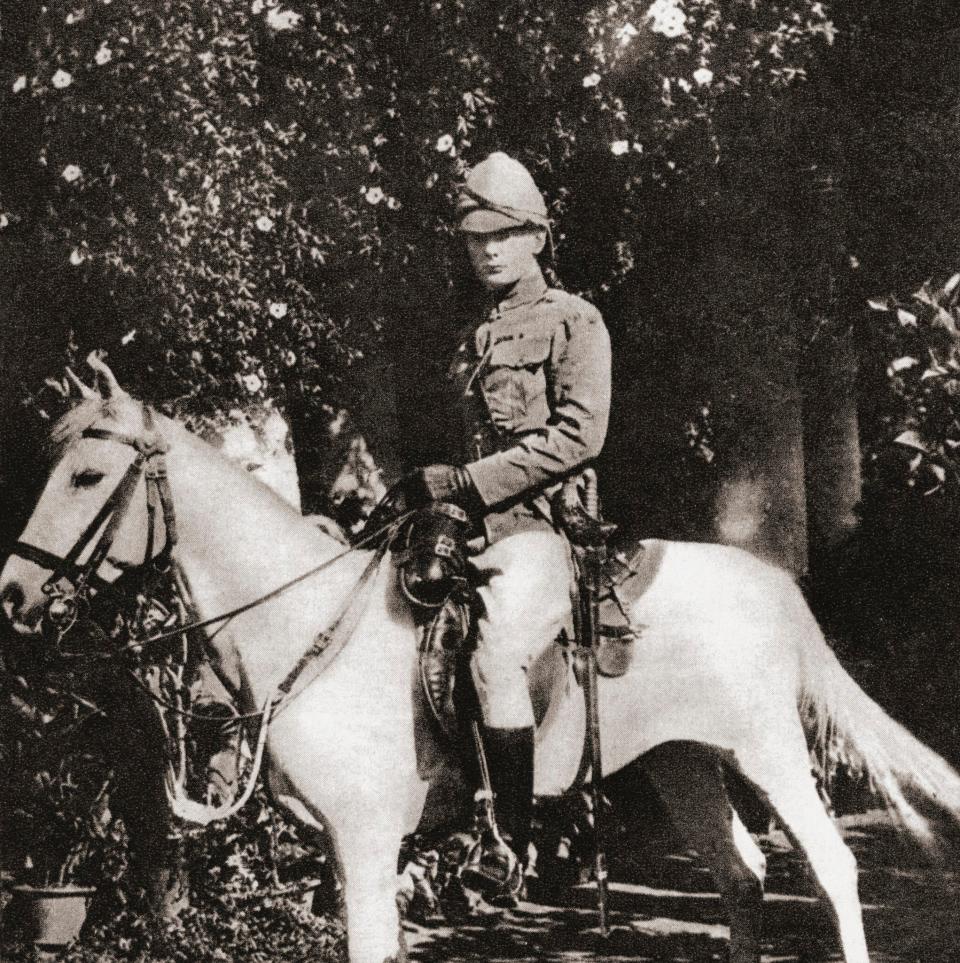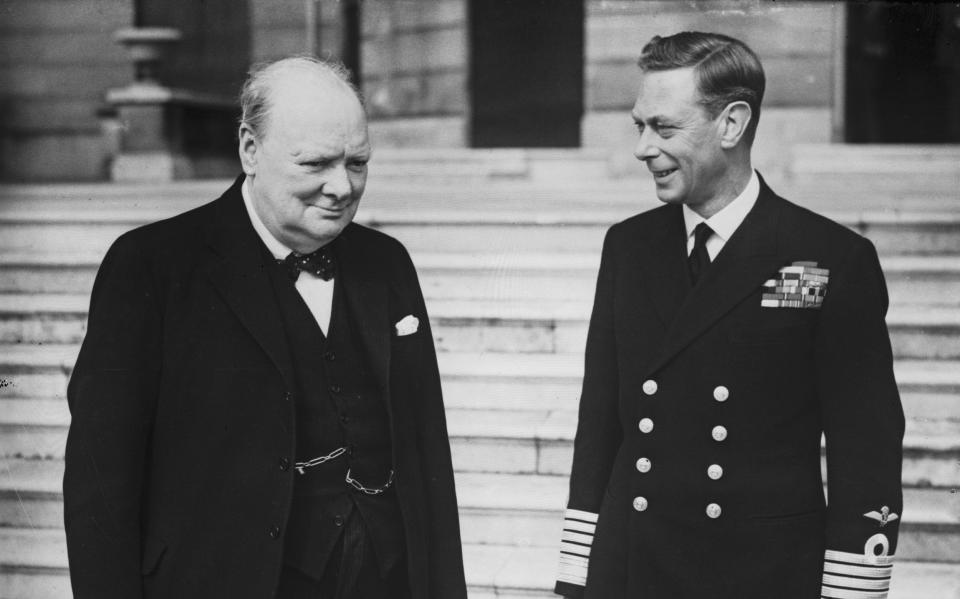This attack on Churchill is appalling – and nonsensical

Walter Reid, the author of an admiring biography of Neville Chamberlain, has written a book claiming that Winston Churchill’s attitude towards India was “malign, cruel, obstructive and selfish”. Pleasingly, however, Fighting Retreat: Churchill and India utterly fails to prove any of those accusations, except that Churchill tried to obstruct self-government for India from 1930 to 1935, which is hardly a state secret.
Reid revels in hyperbole, stating that Churchill displayed a “disingenuous and unprincipled opposition to any initiative which might edge India, however slightly, out of the clutches of Great Britain”. (Those were the “clutches”, by the way, that gave India her railways, mass education system, irrigation projects, law and order, English language as her first national lingua franca, universities, newspapers, standardised units of exchange, telegraphic communications, an uncorrupt legal system, medical advances, and the abolition of the widespread practice of burning widows alive on their husbands’ funeral pyres.)
Was Churchill really “disingenuous and unprincipled” in his five years of opposition to the Government of India Act 1935? Even as hostile a critic as Reid accepts that he pursued his campaign even to the detriment of his own career, and it kept him out of government until the Second World War. If anyone was unprincipled at that time, it was in fact the National Government, which Reid admits tampered with the vital evidence given to Parliament by Lancastrian manufacturers about the likely commercial implications of Indian self-government. Churchill never did anything like that.
There was also nothing disingenuous about Churchill’s central message about the dangers of over-hasty Indian self-government, which was that the Hindus would use their numerical advantage to strip the Indian Princes, with whom Britain had treaty obligations, of their powers, as well as dominate the Muslim minority and keep the Untouchables at the bottom of an unaltered caste system. Those were the essential bases of Churchill’s critique, and Indian history from 1947 to the present day has proven him correct in all three. Not a word from Reid about Churchill’s prescience; instead he is accused of “a malign continuum of deceitful and hypocritical attempts to thwart India’s entirely reasonable political aspirations”.

Churchill believed the British Empire was worth defending, and feared national decline if India left it, and so he fought to keep the status quo, but he did it from decent motives which Reid either ignores or denies. It was a losing battle, but only because Britain nearly bankrupted herself helping to save the world from fascism. If Britain had had no need to come to India’s aid in 1941, which she did because it was part of the Empire, it’s likely that it would have been invaded by Imperial Japan, with tens of millions of Indians dying, if other Japanese occupations such as the Philippines are anything to go by.
Reid is on similarly weak ground where he considers other aspects of Churchill’s career. It was not Churchill’s “force of character” that prevented the War Cabinet from pursuing peace negotiations with Hitler in May 1940, for example: he was in a four-to-one majority there, as the biographer of Neville Chamberlain ought to have known. Reid’s criticism of successive prime ministers and secretaries of state for India for not visiting India during their time in office has a straightforward explanation: the Viceroy of India had constitutional precedence there.
We shall be marking the 150th anniversary of Churchill’s birth in 2024, and along with a panoply of celebrations, there will inevitably be a chorus of the usual baleful criticisms, many focused on his supposedly inadequate response to the appalling Bengal Famine of 1943, which killed over three million people. The facts are straightforward, and confirmed by the meticulous report of the official inquiry, which did not hesitate to allocate blame. A typhoon in late 1942 destroyed both Bengal’s rice and the road and rail networks that were needed to get emergency aid to the region. The Japanese controlled the areas such as Malaya, Burma and Thailand from where rice could normally be shipped, and Churchill wrote to ask the leaders of America, Canada and Australia to send food supplies, although Japanese submarines in the Bay of Bengal made such operations difficult. The Bengal authorities, both British and Indian – the province had been self-governing since 1935 – failed to requisition rice from local merchants, as food prices soared. The Viceroy in Delhi ought to have acted sooner imposing central authority. But none of this was the fault of the government in London, let alone Churchill.

Fortunately Reid is enough of an objective historian to recognize that Churchill did not deliberately want to use the opportunity to kill Bengalis, as alleged by his detractors – who ignore the separation of powers in wartime India – but Reid does quote those detractors ad nauseam. And in swallowing whole the Left-wing economic view that Britain was simply an exploitative leech on India from 1600 to 1947, Reid parrots the profoundly flawed analyses of authors such as Shashi Tharoor, Richard Toye and Sathnam Sanghera. He quotes Tharoor’s belief that “Britain’s Industrial Revolution was built on the destruction of India’s thriving manufacturing industries” and that “slave-related businesses contributed the same proportion of British GDP as the professional and support services sector does in modern Britain”, despite both claims having been comprehensively exploded in review after review of Tharoor’s deeply bigoted book. By contrast, there is no indication that Reid has read the works of scholars such as Tirthankar Roy, Zareer Masani and Kartar Lalvani who prove that Anglo-Indian trade was extraordinarily beneficial to both countries.
“His consistent policy towards India from 1930 onwards cannot be excused or justified,” Reid claims of Churchill. “It was dishonest, mendacious and immoral.” Yet Churchill gave literally hundreds of speeches on the topic up and down the country for half a decade, often to huge audiences. If it was genuinely any of those three adjectives, why was it not denounced as such at the time? Contemporaries criticised his stance as wrong or short-sighted or dangerous, but they recognised that he was pursuing his campaign out of honorable motives, and so should we.
Others of Reid’s accusations, such as that Churchill “never matured” from being a subaltern, or that he was responsible for Hindus and Muslims being “divided among themselves” – when the divide had begun centuries before Churchill’s birth – are frankly risible. One is left with the strong sense that Churchill was neither “malign” nor “cruel”, but that this book is both.
Andrew Roberts is the author of Churchill: Walking with Destiny. Fighting Retreat: Churchill and India is published by C Hurst at £25. To order your copy for £19.99, call 0844 871 1514 or visit Telegraph Books